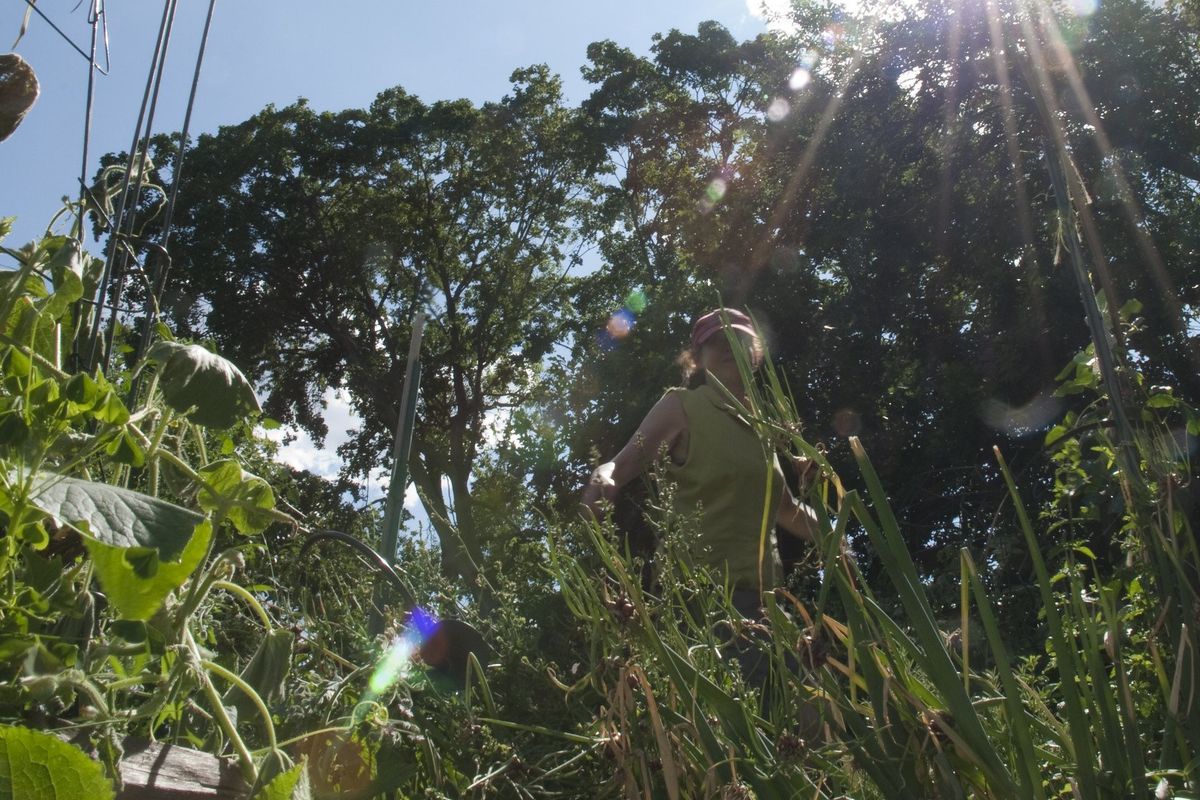
PITTSBURGH—There’s nothing better than a summer day spent in the garden — but be careful where you plant it.
Villanova University researchers tested 21 gardens in Pennsylvania— many built on former industrial sites — and found concerning levels of heavy metals, particularly lead. Five of the gardens were in Pittsburgh and the rest were in the city and suburban areas of Philadelphia. The researchers found lead, zinc, copper, cadmium, nickel, vanadium and arsenic. While all levels — except some vanadium— were below Pennsylvania Department of Environmental Protection guidelines, the researchers chose to focus on lead as it has the most negative effects on human health —there is no safe level of lead exposure.
This study raises questions about the health of urban community gardens in industrialized areas, as heavy metals like lead can absorb into the vegetables or contaminate them if the vegetables are not washed well. Children playing in gardens are also at risk for ingesting lead that gets on their hands from the soil. The toxic metal causes attention problems, decreased IQ, increased problem behaviors, kidney disease, preeclampsia and cardiovascular issues.
Kabindra M. Shakya, a professor in the geography and the environment department at Villanova who led the study, became aware that some Philadelphia residents were concerned about soil on a lot they wanted to grow vegetables on. “They were to make a community garden and they had heard of lead being a concern. They were trying to send some soil for analysis,” he told Environmental Health News (EHN). The gardens tested in Pittsburgh were all in urban areas and generally less than an acre in size. The researchers noted that many of the sites formerly contained smelters or other industrial operations.
Because there is not one universal standard for lead levels, the team for this study used the standard of 140 mg/kg of soil. Shakya felt the Environmental Protection Agency’s standard of 400 mg/kg of soil was too high — along with Canada, several other countries and the state of California consider 80 mg/kg of soil to present health risks for consumers — particularly children. “Sixty percent of the beds we tested exceeded the standard by Canadian guidelines,” he said.
What does this study mean for community gardens?

Jasen Bernthisel, community garden project manager at Grow Pittsburgh, told EHN the organization has been aware that lead contamination could be an issue. “For gardens entering our New Garden Program, we conduct a comprehensive soil test of entire community garden sites,” he said. If the results are elevated, Grow Pittsburgh either works with garden groups to find a new plot of land or recommends raised beds. “We also encourage the use of best practices in organic growing, including amending soils with compost, mulching and thoroughly washing vegetables after harvesting,” he said.
Grow Pittsburgh’s Sustainability Fund program allows community gardens to apply for support including soil testing. Their Garden Resource Center partners with organizations in Allegheny County to offer free soil testing for private and community gardens to community residents, too.
At the West Penn Park in Pittsburgh’s Polish Hill neighborhood, garden volunteer Cindy Crabb told EHN that they’ve been concerned about lead in soil. West Penn Park was not part of the study, but Crabb said the data has implications for the garden. They’ve laid landscape fabric, brought in topsoil and installed a drip irrigation system that does not splash onto vegetables to reduce potential contamination. Planting veggies that grow above ground, such as peppers, versus in-ground crops like carrots and potatoes, can also reduce lead levels in food.
“I am hoping this study will help the city government have a more strategic plan to support community gardens in lead remediation,” Crabb said.
She also said that Grow Pittsburgh has helped them balance the pH and phosphorus in the soil, which can help prevent plants from absorbing lead from contaminated soil. But their biggest need, she said, is for the city government to provide water sources for all the gardens so they can wash all the vegetables. ” Crabb notes that city councilwoman Deb Gross has been proactive in supporting healthy community gardens that provide food to under-resourced residents, but there is still much work to do.
Should backyard growers be concerned about their soil?
Many community gardens are placed on abandoned lots where structures were razed, which contributes to soil contamination. When a smelter, forge or other factory is demolished, it can still affect the ground where it sat for decades. Should private residents be concerned about their own soil, though?
The industrial history in the Pittsburgh area means any soil could be contaminated and testing is the only way to assure safety — even if someone has been in their home for many years. “Despite the industrial activities that have ceased, heavy metals do persist in the soil for a long time,” Shishir Paudel, a plant ecologist with the Phipps Conservatory and Botanical Gardens, told EHN.
At Phipps, Paudel and his colleagues test for lead and other contaminants as part of their regular growing procedure. He said there are some steps backyard growers can take, including soil testing, adding organic matter and compost to the soil, using raised beds, adding lime or adjusting the soil pH, rotating plants that maintain soil health such as sunflowers and mustard and using drip irrigation such as the system used at West Penn Park.
While this study was relatively small, Shakya and his team do plan to look further into this issue. “We are not only looking at gardens, but will be looking at the community’s water as well. We are concerned with how much lead is in the municipal tap water, backyards and children’s play areas as well.”





